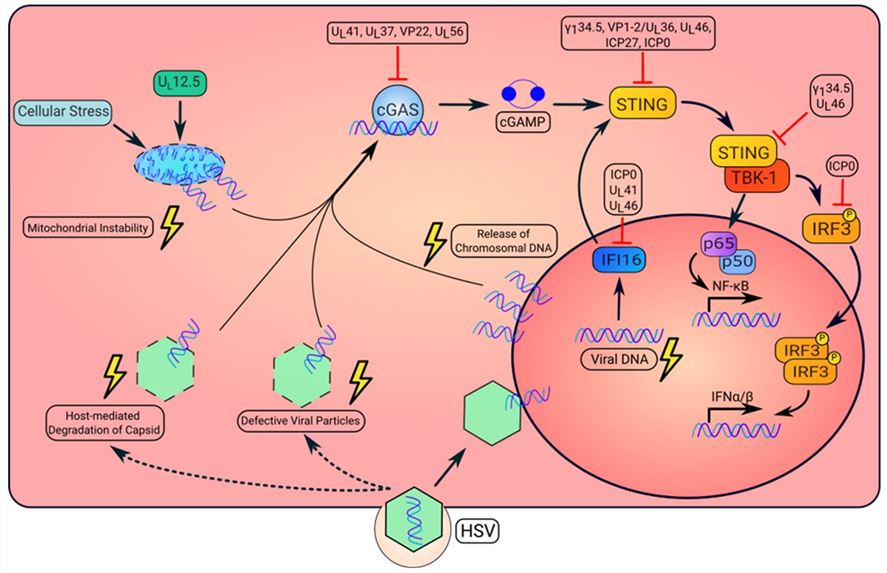Creative Biolabs is keenly aware of the significant challenge posed to public health by double-stranded DNA (dsDNA) virus infections. Consequently, we are dedicated to providing our clients with cutting-edge drug discovery services targeting these complex viral infections. Our team brings together top experts in various fields such as biology, virology, pharmacology, and bioinformatics, committed to making significant advancements in the field of dsDNA virus drug development through innovative research methods and technical approaches.
dsDNA viruses are characterized by their unique double-helix DNA structure as their genetic core. They are widespread in the biological world, infecting organisms ranging from simple unicellular organisms to complex humans. The replication process of these viruses is intricate and complex, involving precise attachment to host cells, effective introduction of DNA, unpacking of DNA within the cell, transcription and replication, and the meticulous assembly and release of new virus particles. It is this complex replication mechanism that presents unique challenges in the treatment of dsDNA virus diseases and scientific research.
 Fig.1 Activation and repression of the STING pathway by Herpes Simplex Virus (HSV).1,2
Fig.1 Activation and repression of the STING pathway by Herpes Simplex Virus (HSV).1,2
Human Papillomavirus (HPV):
Progress in Treatment Research: HPV is a virus closely associated with various cancers, especially cervical cancer. In addition to physical removal and conventional drugs, researchers are exploring treatments including immunotherapy and targeted therapies for cancers caused by HPV.
Cytomegalovirus (CMV):
Progress in Treatment Research: CMV primarily causes issues in populations with compromised immune systems, such as AIDS patients or organ transplant recipients. Current drugs for CMV infections mainly include antiviral drugs like valganciclovir and its prodrug form, which effectively control viral replication. Researchers are also working on developing new drugs and treatment strategies to improve efficacy and reduce side effects.
Herpes Simplex Virus (HSV):
Progress in Treatment Research: HSV mainly causes oral and genital herpes. The primary method of treating HSV is the use of specific antiviral drugs that can reduce the frequency and severity of herpes outbreaks. Recent research is also exploring the use of gene editing techniques to treat or eradicate HSV infections.
Hepatitis B Virus (HBV):
Progress in Treatment Research: HBV infection is a global public health issue, with long-term infection potentially leading to cirrhosis or liver cancer. Current drugs for HBV infection mainly include reverse transcriptase inhibitors, which effectively inhibit viral replication and reduce the progression of liver disease. Additionally, researchers are developing new treatment methods, such as RNA interference-based strategies, to increase cure rates and prevent virus transmission.
If you are looking for efficient and customized solutions to advance your projects, please contact us. We look forward to collaborating with you to achieve significant progress in the field of dsDNA virus infection treatment.
References: